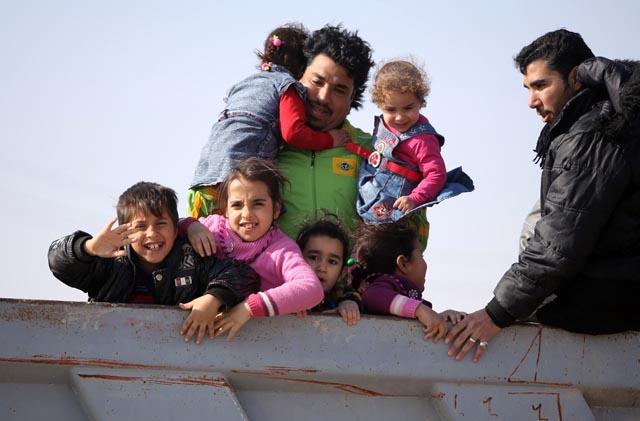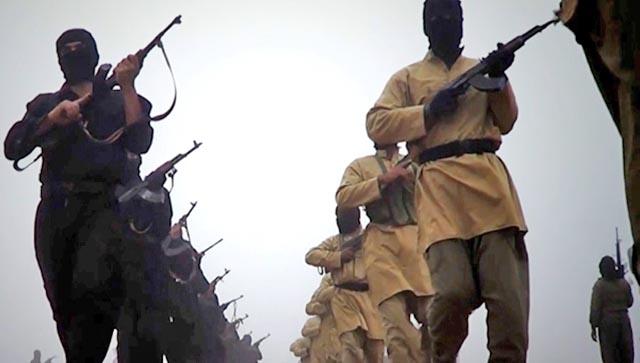RAMADI –– Iraqi troops will delay assaulting the militant-held city of Fallujah, an officer said Tuesday, citing fear of civilian casualties, as fighting and missile strikes in nearby Ramadi killed 29 people.
Parts of Ramadi –– the capital of Anbar province, west of Baghdad –– and all of Fallujah have been outside government control since last week.
It is the first time militants have exercised such open control in major cities since the height of the insurgency that followed the 2003 US-led invasion.
“It is not possible to assault [Fallujah] now” over concerns about civilian casualties, defence ministry spokesman Staff Lieutenant General Mohammed Al Askari told AFP.
Attacking the Sunni-majority city would also be extremely politically sensitive, as it would inflame already high tensions between the Sunni Arab minority and the Shiite-led government.
It would also be a major test for Iraqi security forces, which have yet to undertake such a major operation without the backing of American troops.
Overnight, security forces and allied tribesmen sought to retake south Ramadi from fighters loyal to Al Qaeda-linked group the ISIL, but the assault failed.
“Security forces and armed tribesmen tried last night to enter areas controlled by ISIL fighters in the south of the city,” a police captain told AFP.
“Clashes between the two sides began about 11pm (2000 GMT) last night and continued until 6am,” he said, adding that “security forces were not able to enter these areas and ISIL fighters are still in control”.
Four civilians were killed and 14 wounded, said Ramadi hospital’s Dr Ahmed Abdul Salam, who had no casualty figures for security forces or militants.
Later Tuesday, missile strikes in Ramadi killed 25 militants, Askari said.
Three loud explosions were heard outside Fallujah early Tuesday, a witness said, as the army deployed reinforcements.
“Today, the army sent new reinforcements, including tanks and vehicles, to an area about 15 kilometres east of Fallujah,” a police captain told AFP.
Prime Minister Nouri Al Maliki has called on residents to expel ISIL to stave off a military offensive.
But senior tribal leader Sheikh Ali Al Hammad told AFP Monday ISIL had left Fallujah, and that it was now held by tribesmen.
US working with Iraq to isolate Al Qaeda
As violence in Anbar entered its second week, the Pentagon said Washington would accelerate delivery of 100 Hellfire missiles, which were due to be sent to Iraq in the next few months.
Colonel Steven Warren said an additional 10 ScanEagle surveillance drones would also be supplied.
Warren said Washington was working with Iraq to develop a “holistic strategy to isolate Al Qaeda-affiliated groups so the tribes working with the security forces can drive them out of the populated areas”.
But he reiterated statements by US Secretary of State John Kerry that no American forces would enter the fray.
Fighting erupted near Ramadi on December 30, when security forces cleared a year-old protest camp where Sunni Arabs had demonstrated against what they see as the marginalisation and targeting of their community by the government in Baghdad.
The violence spread to Fallujah, and militants moved in and seized the city after security forces withdrew.
Maliki had long sought the closure of the protest camp, dubbing it a “headquarters for the leadership of Al Qaeda”.
But its removal has come at the cost of a sharp decline in Anbar’s security situation.
Both Ramadi and Fallujah were insurgent strongholds in the years after 2003, and Fallujah was the target of two major assaults in which US forces saw some of their heaviest fighting since the Vietnam War.
They eventually wrested back control of Anbar from militants, with the support of Sunni Arab tribesmen who formed the Sahwa (Awakening) militias, which allied with US troops against Al Qaeda from late 2006.
But two years after US forces withdrew from Iraq, Sunni militants have regained strength, bolstered by the war in neighbouring Syria and widespread Sunni Arab anger with the central government.
Iraq also suffered violence outside Anbar on Tuesday, when a suicide bomber detonating an explosives-rigged vehicle near a police station in the northern city of Kirkuk, killing four people and wounding 56.


















